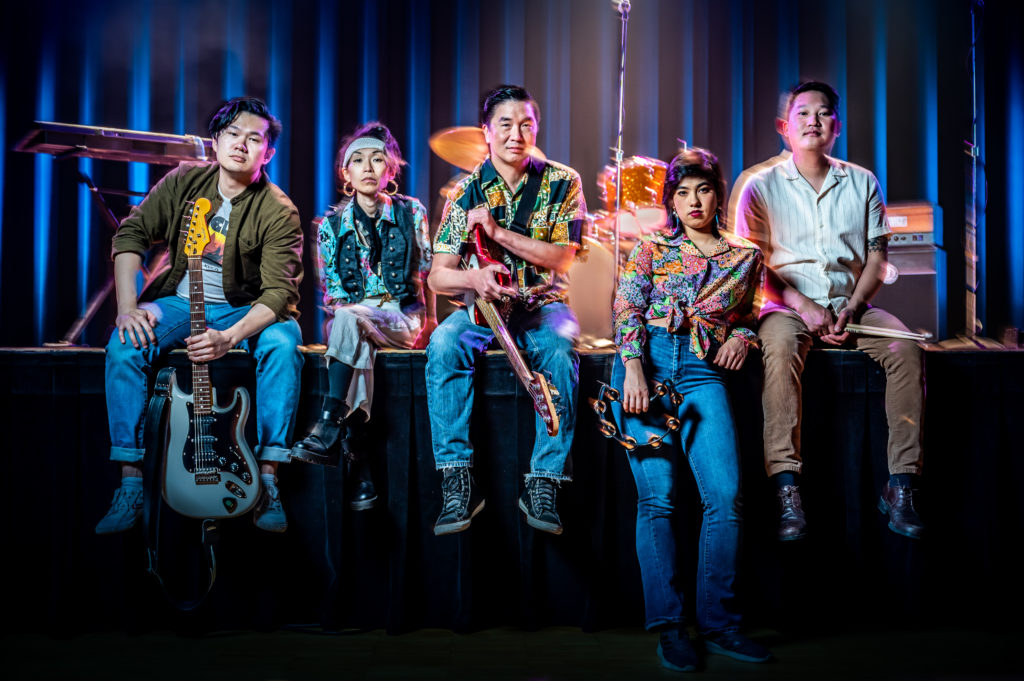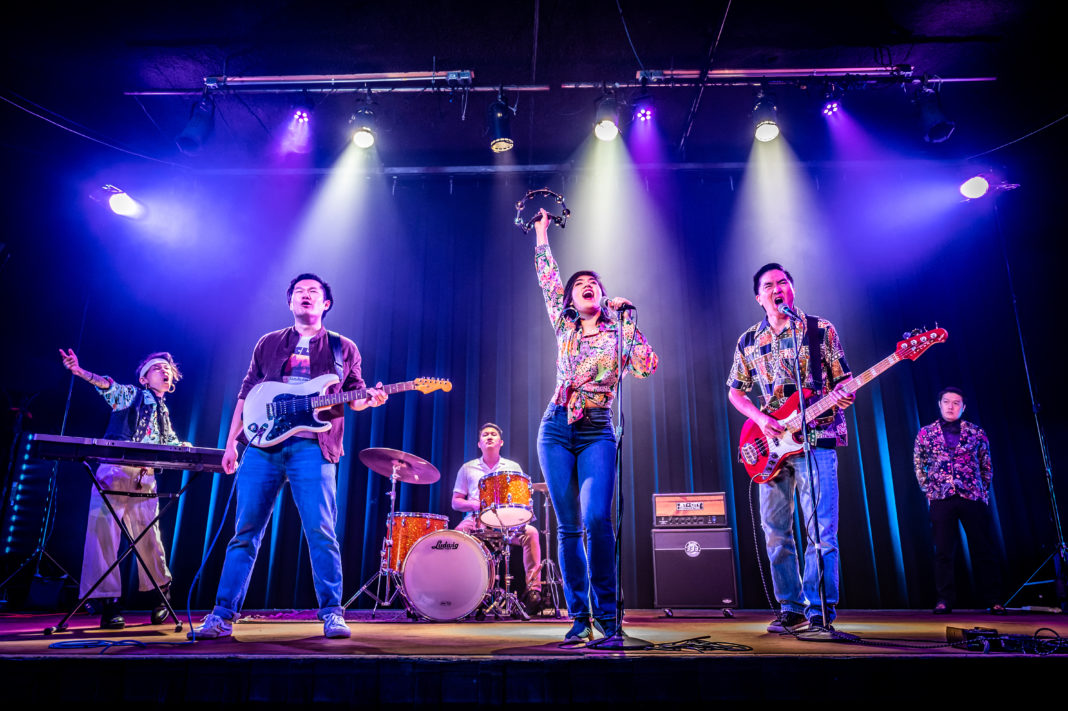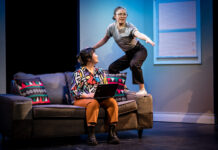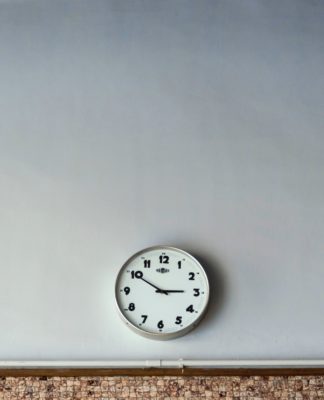Music is an important piece of theater – it sets the tone, adds emotional cues and impact to create a marriage of image and sound that sticks in the mind of the viewer long after the curtain has closed. For a show like Theater Mu’s latest Cambodian Rock Band – the story of a Khmer Rouge survivor who returns to Cambodia for the first time in 30 years for the trial of a Cambodian war criminal, led by the music of Dengue Fever and classic Cambodian “oldies” – music is quite literally at the forefront.
Working behind the scenes to put it all together is Music Director Mandric Tan.
“Not really,” Tan says. “I would place the director, the actors, the musicians, even the language coach as more important than me.”
Humility aside, it is the passion for music that fulfills Tan’s ambitions, blending east-meets-west sensibilities and helping to bring the production together with an approach to music-based storytelling that proved to be much more complicated, and also rewarding, than he ever could have been expected.

“This is my first stage production,” he says. “I’ve never worked in theater before. I was a bit wary, but excited for the challenge.”
Tan, a graduate of the renowned Berklee College of Music, has more than a decade’s worth of experience as a multi-faceted music producer. He has worked as music arranger, recording engineer, and producer for numerous National Day Parades and Chingays in his native Singapore, and – before taking a brief break to venture into this new medium with Theater Mu – a prestigious role touring with China’s “King of Pop” Wang Leehom.
Billed as “Part historical play, part rock concert,” the show was a “balancing act,” Tan says, between acting and singing – bringing out the best of each, and learning how to get the best musical performance from an actor while ensuring the music isn’t overshadowing the script; after working exclusively with musicians, it was a process of learning what language to use, and how best to approach unfamiliar terrain and an unfamiliar type of performance.
“Some were a bit nervous to work with me,” he says with a laugh. “I have a reputation. I do not suffer fools!”
Those fears, however, proved to be unfounded. Art is about give and take, after all –
“I learned a lot,” Tan says. “For example, upon first reading the script [for Cambodian Rock Band] I found myself unable to fully visualize the production. It didn’t come to life for me. I fell asleep during the first reading –
(Though this was as much the result of jet lag and a 13-hour time difference between Singapore and Minnesota).
“But now, as I’m reading the words of a script, I find myself able to visualize the show, the music, how they work together. A script can bring music to life in a way it never did before. I’m grateful to have learned this skill.”
It was by using specific sound and tonality to honor both the rock-and-roll of the namesake and the traditional sound of Cambodian music that helped bring Cambodia to life onstage – it is through this sort of tonality that we can immediately identify a style of music, the unique sounds and thus culture of a specific place based on music; if you have ever wondered why certain music sounds distinctly of a certain culture, country, or region of the world from just a few notes or short melody, this is the reason.

This is where Tan thrives.
“It is so fascinating to work on a production like this,” Tan says. “Consider what we know as the traditional scale of Western music. This is not the same scale used in the music of Southeast Asia, for example. The tempered scale known best in the west is very different than the scale used in the music of Cambodia, Thailand, Vietnam, which is not the same as Russia, or India, or anywhere else in the world.”
What is often overlooked is the amount of work that goes into a stage production like Cambodian Rock Band – bringing to life stories which might otherwise lie dormant in the shadows of history. When creating a theater production there is no room for wasted space – every detail is there to create an immersive, dynamic experience for the audience. Everything comes together to create a story of cultural significance, honoring past and present (and future) that is also enjoyable and memorable for a wide and diverse audience, especially for those who may not be familiar with the history.
The Khmer Rouge regime took control of Cambodia from 1975-1979, and has been charged with killing as many as 1.5 – 2 million people, or 25% of the country’s population, in the infamous “killing fields,” what is now known as the Cambodian genocide. This context provides the backdrop for a show that is as much personal story – as it centers around one man’s return after 30 years and his relationship there with his daughter – as it is history. It is also a testament to how powerful music can be when telling a story so important to so many people, reminding us why such experience should never be forgotten. From the script by Lauren Yee Cambodian Rock Band does exactly that.
“It’s why I have so much respect for [Director] Lily Tung Crystal,” Tan says. “She is the one who pulls everything together. There are so many moving parts. I only play a small role.”
“Music,” he says, “is only one cog in the engine of entertainment.”
The show runs through the end of July. Tickets are $45, but Theater Mu does offer a “Pay As You Are” model that brings the price down as low as $5. This allows for as much inclusivity as possible and ensures all who are interested in the show are able to see it.
“But small theater thrives on the support of our patrons.” Tan laughs. “Pay $45 – if you can!”
Read this next: Man of God: Theater Mu Tackles Sexual Abuse, Violence, Religion, Patriarchy in Triumphant Return

















